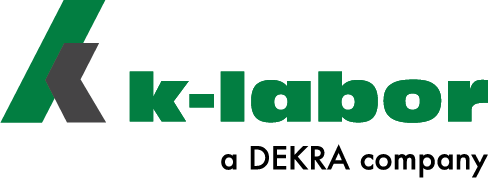Erfahren Sie mehr in unserer
Presseinformation.
Akkreditiertes Prüflabor
nach DIN EN ISO/IEC 17025.
Ihr Spezialist für Metalle,
Kunststoffe, Elastomere.
Chemical resistance of medical devices and medical technology components
Safe materials in everyday hospital life – tested resistance to disinfectants and cleaning agents
In medical facilities such as clinics, nursing homes or laboratories, materials are exposed to particularly intensive and regular chemical exposure. Medical devices, housings, operating elements and surfaces are treated daily with highly effective disinfectants and cleaning agents. The media used – whether alcohol-based, acidic, alkaline or oxidizing – can cause long-term damage to plastics and coatings.
To ensure long-term durability and product safety, we at DEKRA (formerly K-Labor) carry out specific tests for chemical resistance – in line with standards, practical and tailored to medical requirements.
Typical test media in the medical environment
Our tests simulate real-life exposure to:
- Alcohol-based surface disinfectants (ethanol, isopropanol, propanol)
- Oxidative disinfectants (e.g. based on hydrogen peroxide, peracetic acid or hypochlorite)
- Disinfectants containing aldehydes (e.g. glutaraldehyde)
- Quaternary ammonium compounds (QAV)
- Alkaline and acidic special cleaners for instrument or surface reprocessing
- Multi-component high-performance cleaners for operating theaters and intensive care areas
The selection is based on the groups of active ingredients commonly used in the healthcare sector and on the manufacturer’s instructions for the cleaning agents and disinfectants.
Test methods for disinfectant resistance
We test material compatibility under realistic conditions in accordance with DIN EN ISO 2812 (parts 1-4), supplementary standards and manufacturer specifications:
- Wipe tests and drip tests: Disinfectants are applied several times or applied selectively – the daily cleaning cycle is simulated.
- Storage in disinfectant solutions: Plastic samples are stored for hours or days in diluted or undiluted cleaning agents – at room temperature or elevated temperatures.
- Application with absorbent carrier materials (e.g. cellulose fleece): for long-term effect under moist conditions.
- Testing under mechanical stress (e.g. pre-tensioning, bending stress): to detect stress cracks and material damage.
- Combination with heat storage and climatic stress to simulate real conditions in clinics or during transportation and storage.
Among other things, the following are evaluated:
- Color changes, loss of gloss, embrittlement, cracking
- Swelling, spalling, stress cracks
- Changes to the surface structure (e.g. clouding, matting)
- Loss of mechanical or functional properties
- Compatibility with prints, displays, films and coatings
All results are documented in detail – with photo documentation, classification according to standard or manufacturer specifications and recommendations for material optimization or product protection.
Typical areas of application:
- Housing and operating elements of medical devices
- Components used close to the patient (e.g. handpieces, cables, tubes, handles)
- Sterilization baskets, trays, packaging
- Mobile devices, tablets, scanners with plastic or foil surfaces
- Operating room and laboratory equipment with regular wipe disinfection
Avoid costly complaints due to chemical material damage.
We support manufacturers, suppliers and developers of medical devices in testing and optimizing disinfectant resistance – safely, in compliance with standards and with strong documentation.

